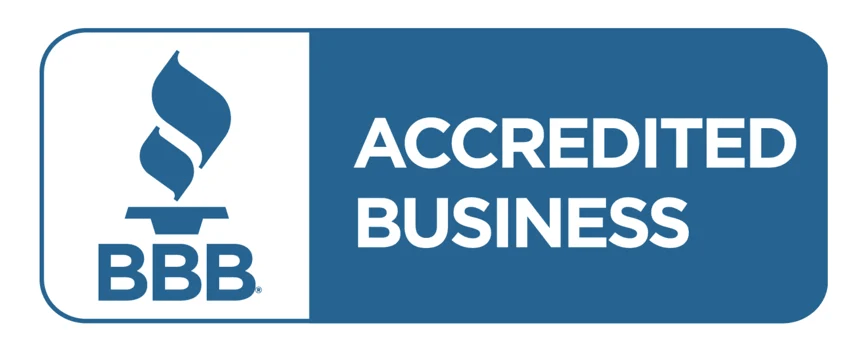Allowable Expenses When Selling Rental Property in Missouri
Selling rental properties in Missouri can be a significant financial decision with various implications. It is essential to understand the allowable expenses associated with the sale to maximize your profit and minimize your tax liability.
By familiarizing yourself with the tax deductions available, you can ensure that you are taking full advantage of the benefits provided by tax laws when selling rental property in Missouri.
What Are Capital Gains Tax in Real Estate?
Before delving into the allowable expenses, it's crucial to comprehend the concept of capital gains tax in Missouri. Capital gains tax is a tax levied on the profit made from the sale of an asset, such as real estate. When you sell a rental property, you may be subject to paying capital gains tax on the difference between the property's purchase price and its selling price.
In Missouri, the capital gains tax rate varies depending on your income level and the duration you held the property. It is essential to consult with a tax professional to determine the exact tax rate applicable to your situation.
What is the Difference Between Short-Term and Long-Term Capital Gains?
When it comes to capital gains tax, there is a distinction between short-term and long-term capital gains. The duration you hold the property influences the tax rate you will pay.
Short-Term Capital Gains
Short-term capital gains apply to properties that are held for one year or less before being sold. These gains are taxed at your ordinary income tax rate, which is typically higher than the long-term capital gains tax rate. It is crucial to consider the impact of short-term capital gains tax on your overall profit when selling a rental property.
Long-Term Capital Gains
On the other hand, long-term capital gains apply to properties that are held for more than one year before being sold. The tax rate for long-term capital gains is generally lower than the short-term rate, providing an advantage for real estate investors who hold their properties for an extended period. Understanding the difference between short-term and long-term capital gains can help you make informed decisions when selling your rental property.
Common Allowable Expenses
To minimize your tax liability and maximize your profit, it's important to be aware of the allowable expenses that can be deducted from your taxable income. Here are some common allowable expenses when selling rental property in Missouri:
- Legal and professional fees: Any fees paid to lawyers, accountants, or other professionals directly related to the sale of your rental property can be deducted. These fees may include legal advice, document preparation, or tax planning services.
- Real estate agent commissions: When you sell a rental property, you may hire a real estate agent to assist with the process. The commission you pay to the agent can be deducted as an allowable expense.
- Home repairs and improvements: Expenses incurred for necessary repairs or improvements made to the rental property before the sale can be deducted. This includes costs for fixing plumbing issues, replacing damaged flooring, or upgrading appliances.
- Staging and marketing costs: To attract potential buyers, you may invest in staging the property or marketing it through various channels. These expenses can be deducted as allowable expenses when selling your rental property.
By deducting these common allowable expenses, you can reduce your taxable income and potentially lower your overall tax liability.
Which Tax Deductions Are Specific to Rental Properties?
In addition to the common allowable expenses, there are specific tax deductions available for rental properties. Understanding these deductions can further enhance your ability to minimize taxes when selling a rental property in Missouri. Here are some key deductions to consider:
- Depreciation recapture: As a real estate investor, you may have claimed depreciation deductions on your rental property in previous years. When you sell the property, a portion of the accumulated depreciation must be recaptured and added back to your taxable income. It is essential to understand the calculation of depreciation recapture and its impact on your overall tax liability.
- Property tax proration: Property taxes are typically prorated between the buyer and the seller at the time of sale. The portion of property taxes attributable to the period you owned the property can be deducted as an allowable expense.
- Mortgage interest deductions: If you have an outstanding mortgage on your rental property, the interest paid on the loan can be deducted during the sale process. This deduction can help reduce your taxable income and lower your overall tax liability.
By taking advantage of these rental property-specific tax deductions, you can optimize your tax strategy and potentially save a significant amount of money when selling your rental property.
Calculating Net Profit from the Sale
To determine your net profit from the sale of your rental property, you need to calculate the difference between the property's selling price and your total allowable expenses. Here's a step-by-step guide to help you calculate your net profit:
- Determine the selling price of your rental property.
- Subtract the allowable expenses from the selling price.
- Consider any outstanding mortgage balance or liens on the property.
- Deduct any remaining debt from the selling price minus allowable expenses.
- The resulting amount is your net profit from the sale.
By following this guide, you can accurately calculate your net profit and have a clear understanding of the financial outcome of selling your rental property.
Record Keeping and Documentation
Maintaining accurate records and documentation is crucial when selling a rental property in Missouri. This practice not only helps you stay organized but also ensures that you have the necessary documentation in case of an audit. Here's what you need to know about record keeping and documentation:
- Why should I maintain accurate records? Accurate records provide evidence of your allowable expenses, deductions, and income. They serve as proof in case of any disputes with tax authorities and can help you accurately report your financial transactions.
- What types of documents do I need to keep, and for how long? You should keep all documents related to the purchase, maintenance, and sale of your rental property. This includes purchase agreements, repair receipts, rental income records, and closing documents. It is recommended to keep these documents for at least seven years.
- How do I keep my records organized? Utilize a filing system or digital platform to organize your records. Keep separate folders for different categories, such as purchase documents, repair receipts, and tax-related documents. Regularly update and maintain your records to ensure accuracy.
By keeping accurate records and organizing your documentation, you can streamline the process of selling your rental property and avoid any potential issues with tax authorities.
Sell Your House Fast in Missouri and Kansas
If you need to sell your house fast but don’t want the hassle of a traditional home sale, contact Brittco. We buy houses as-is. No repairs are needed. Avoid closing costs and realtor commissions. Close in as little as seven days. Call 913-219-5583 for a fast cash offer from our local home buyers in Missouri and Kansas.


